danielle577
I am an avid reader of all genres of literature. My favorite authors include: Woolf, Steinbeck, Langland, Donne, Faulkner, and Eliot. My goal is to become a fluent writer.
Contributor II
- Plebian Penman
- Common Writer
- Lurker
- Pssst
- Hand Raiser
- Sharp-Eyed Citizen
- Town Watch
- Detective Deskman
- Well Read
- Chaptered Mind
- Article of the Month
- ?
- Articles
8 - Featured
7 - Comments
47
- Ext. Comments
36 - Processed
41 - Revisions
27
- Topics
14 - Topics Taken
1 - Notes
103
- Topics Proc.
22 - Topics Rev.
2
- Points
1779 - Rank
61 - Score
1133
Latest Articles
Latest Topics
Body Language as the Catalyst of Passion in Jane Austen's PERSUASIONJane Austen is well-known for her witty dialogue, back-and-forth banter between characters, and free-indirect discourse; yet, Persuasion is a complete departure from all of her previous works. Persuasion is a more ‘adult’ novel, with the female protagonist as a 27-year-old unmarried woman. Her once betrothed, whom she denied due to his lack of wealth and societal stature after persuaded by her aunt, has returned to her life seven years later. The lack of dialogue that ensues between these two characters throughout the majority of the novel creates a level of excruciating passion and anticipation that is palpable, and unmatched in any other work by Austen. Focusing on the sensory capabilities of the two characters creates a sensual environment where the body remains in the foreground. When reviewing Austen’s breach from the traditional overload of dialogue and new reliance on body language, the power of perception and keen sensual prowess, do we in fact have a more ‘adult’ geared book, matching her own age, and possible longing for more sensuality, and less games?
|
Can You Teach Someone How To Become a Writer?I have recently been faced with this question and I find that my response is not as black and white as I had originally supposed. Yes, you can teach someone the fundamental aspects of writing: thesis, introductory paragraph, syntax, diction, body paragraphs, topic sentences per paragraph, and a conclusion. But what about teaching someone to think like a writer? The love/hate relationship with writing that leaves one elated or deflated? Do you believe being a good writer is an innate gift, or something that can solely be taught? I do understand that some people need to be pushed to realize they do have the gift for writing, but what if it is not there, can it be induced?
|
Are We Desensitized to Human Deaths on the Screen while Traumatized by Animal Brutality?Do you notice how a movie can feature one death after another and there is not one shriek from a member of the audience until the killing of an animal occurs? Why does the audience accept the loss of human life yet become upset and unsettled when a dog is shot to death? Is it a matter of innocence? The animal lacking the same mental faculties as the human and therefore placing it in an inferior, and therefore more sympathetic position? This is a phenomenon I have witnessed countless times across a number of different audiences, and I, too, have the exact same reaction. Another interesting aspect is when the victim is an infant or young child, though still in the process of development, clearly superior to a dog, but still conjuring a higher level of sympathy. This leads back to my prior questions: is this a matter of inferiority? A matter of innocence? Please discuss whether or not you have witnessed similar reactions and what is your thinking behind this disparate response?
|
Are Audiobooks a Lazy form of "Reading?"I recently read an article in which a woman was complaining about constantly having to defend herself for listening to audiobooks. People would accuse her of being "lazy," or "cheating." Sadly, this said person had brain surgery 5 years ago that left her eye sight greatly diminished and reading had become a difficult process, and audiobooks her salvation. Where do you weigh in on this argument–just skim through the internet as those for and against audiobooks take great pride in stating their stance–and why is it even necessary to discuss one’s "reading" habits? Is this a form of prejudice? Why should individuals feel the need to defend themselves? When did the format of reading–though it has been occurring on the e-reader versus paper platform for many years–become such a volatile topic?
|
The Night Of..What Exactly is the Overall Message of the Series?The Night of is currently airing on HBO as an miniseries consisting of 8 parts, but due to the successful following there are now talks–similar to what happened with True Detective–to now having a 2nd season. The miniseries, which began talks in 2012, with the late James Gandolfini slated to star, is based on the BBC miniseries Criminal Justices (2008-2009). The series follows the events of a young american-pakistani’s night out, and the repercussions that occur following the events of this night that, as conveyed to the audience, are a blur. Numerous themes are explored adding to the multitude of audiences responding to the series, ranging from racial prejudices, problems with the judicial system, economic hardships, and questions of morality as well as ethical responsibilities.What theme do you believe resonates most with audiences that is making this series such an overnight success? And if you are able to pinpoint one specific theme, please explain how it is able to resonate with a vast multitude of varying audience members.
|
Pieter Bruegel'sBruegel the Elder’s painting depicts the famous passage from Book VIII of Ovid’s Metamorphoses in which Daedalus, the father of Icarus, provides his son with feathered wings, glued together, and warns him not to fly to close to the sun, for he will be burned, and not to fly to close to the water, for he will drown. The boy does not listen; flies too high; the glue begins to melt; and he plummets to the water in which he drowns. The moral can be understood as moderation as the key to living a successful and fruitful life.
|
Confessions of a Book SnobI refer to myself as a book snob due to having such a difficult time approaching contemporary literature. I tend to stay in the realm of the classical cannon, Medieval Literature, and only "contemporary" authors–Pynchon, Foster, DeLillo–who I know are phenomenal and up to my standard of expectation. I bring up this topic because yesterday I finally purchased The Girl on the Train. It has taken me a year to make this purchase, every time placing the book down, and telling myself I won’t like it, but then falling trap to all of the conversations surrounding the book (then again Fifty Shades of Grey was constantly spoken of!). We tend to discuss the decline in film, but what about the decline in literature? Am I a book snob, or am I accepting the painful reality that there really aren’t many good contemporary reads available? Does anyone else feel this way? Disagree, and provide numerous examples that will have me copying down the list and enthusiastically ordering contemporary books.
|
Breaking Bad: A Television Series Leaving Viewers Questioning the Meaning Behind it All.Though the television series Breaking Bad has been discussed numerous times on this platform, a conversation that has yet to be broached is the amount of symbolism, allusions, and "clues," the creator, Vince Gilligan provides throughout the series. For example…In season 3 episode 7, "One Minute," the time on the dashboard is 3:07. At the same time, Hank gets a call that he has one minute, as two men are on the way to kill him. 3 7=10, or let’s look at it as one minute. Also, the episode is from season 3, episode 7–same time displayed on the dashboard. Lastly, the room number of Skylar’s room when giving birth to Holly is 307. All of these connections are intricately woven by the creator. Other examples for discussion: the constant mentions of Icarus, The Godfather and Scarface references, the similarities between Hank (ASAC) and Ahab from Moby Dick, The meaning behind the title of the series finale, "Felina," (hint, think periodic table of elements and cooking meth; also a few other possibilities), etc. There are numerous connections and allusions, from episode titles that allude to popular movies, to songs, providing the missing puzzle pieces. What does it all mean? It must be important or else why would the creator take great time to intricately weave every single element of the series together. Questions to consider: Why does Walt begin cutting off the crust on his sandwiches?, Look at the wardrobe evolution of characters, consider the episode title, "Grey Matter," etc. The possibilities are endless….let the explorations begin!!!
|
Latest Comments
| Homosocial Bonding in Marlowe’s Hero and Leander | |
Wonderful article! I am exceptionally thrilled to see this article in it’s finished product as it is an informative piece that allows many to learn so much more about Elie Wiesel than his just being the author of Night, or a Holocaust survivor (though these are two momentous things, please do not disregard this statement as frivolous). There was so much more to this man that the mainstream public failed to notice. When he passed, I was quite disappointed to see the lack of coverage on his numerous accomplishments. He serves as a wonderful beacon of hope and a reminder to never let hate blur one’s path in life. His continuous reminder to never forget the past was an hope of never repeating the horrific events of the past. In his speeches, he painted vivid pictures of atrocity, not for sensationalism, but to reach the audience and make them realize that this was real, not some mere statistics in a textbook. By making people feel, it makes them less likely to be able to forget. Excellent job, August Merz. | A Sage's Passing: Elie Wiesel (1928-2016) |
I just began writing on this platform as of recent and I did a “Homeland” search because I’m thinking of a topic and I didn’t want to be repetitive. I came across your article, and honestly, I’m not sure if you’ll ever read this, but this is some of the best writing I’ve had the pleasure of reading, on this site. Your examples are extremely disparate–in a positive manner, while your writing is concise. Just a pleasurable article!! | Five Most Dynamic Male Television Characters of the Year |
This is a beautiful piece that truly argues for the artistic worth of gaming series’. I have always appreciated the beauty and aesthetic value of gaming series, as well as the unbelievable aspects of realism you find in sports games, but I have never caught the “gaming bug.” Amongst all whom I know, I am alone in this category. Therefore, I am around a slew of gamers–all types of gamers. The screen captures from witcher 3 are surreal. Many of them–with the exception of 1–look like the place in which fantasies are born and people would only dream to escape to. | Graphics, Pixels, and the Art of Video Games |
These images are beautiful…they’re like aesthetic works of art that make me intrigued and now I am more enticed to check out these K-pop videos. I have heard people talk about these videos, but I’ve never actually watched one. Thank you for providing a nice handy and accessible guide into the world of K-pop videos. Nice article! | K-Pop on YouTube: How the Platform Has Made it Global |
Now this is exactly why I love the Artifice!! You have a platform where you can read amazing articles by similar like-minded individuals while also getting recommendations of awesome works to read. I have to read Saga, now. I am definitely buying it, and I am absolutely looking into Paper girls! Very excited. Great article, filled with enthusiastic descriptions, and excellent images. | Brian K. Vaughan's Characters: From Lost to Saga |
I am so pleased to see this article published. When it was pending, I knew it was something special and different, therefore a wonderful addition to the forum. This article is so rich with knowledge, yet accessible and provides a wonderful amalgam of past and present concepts combining the worlds of philosophy and technology. Wonderfully done! | Lively Objects: Curating 'Broken' Electronic Art |
Wow, talk about flipping a who franchise 360 degrees. How would this one work out? And for the die hards? How will they take to this? On one hand, this is ingenious, and the way good, complicated writing works. On the other, it can completely annihilate an already established and successful franchise. | What Does a Hydra Captain America Really Mean? |

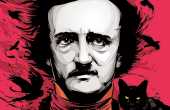
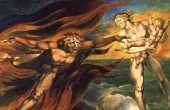
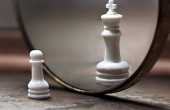
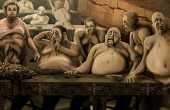


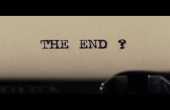
Daumants, Part of the beauty of literature is the ability to analyze it from numerous perspectives. As for our response, “remarkably poor account of the poem,” I would have to adamantly disagree, especially since your “evidence” citing the poor account is the “chain of pebble-stone.” Relating this to a form of enslavement is not being frivolous with a very serious issue, but pointing to the manner in which one may be “stuck” in a certain preconceived position in life.
As for the “hyperbolic and faintly ridiculous description of hero,” I do believe you should revisit Marlowe’s epyllion, as it is well cited by renowned literary theorists as a gross exaggeration. The roles are reversed; whereas it is usually the woman–Hero–that receives the most attention in reference to bodily attributes, Leander–the male–is the one that is described in a sensual, ethereal manner. I also think you may be mixing up the characters. Hero is the female; Leander is the male, and this was yet another jest on the part of Marlowe (As the male is typically referred to as the male). I am sorry you did not enjoy the article…I hope you find something else more suited to your taste. –Best, danielle577